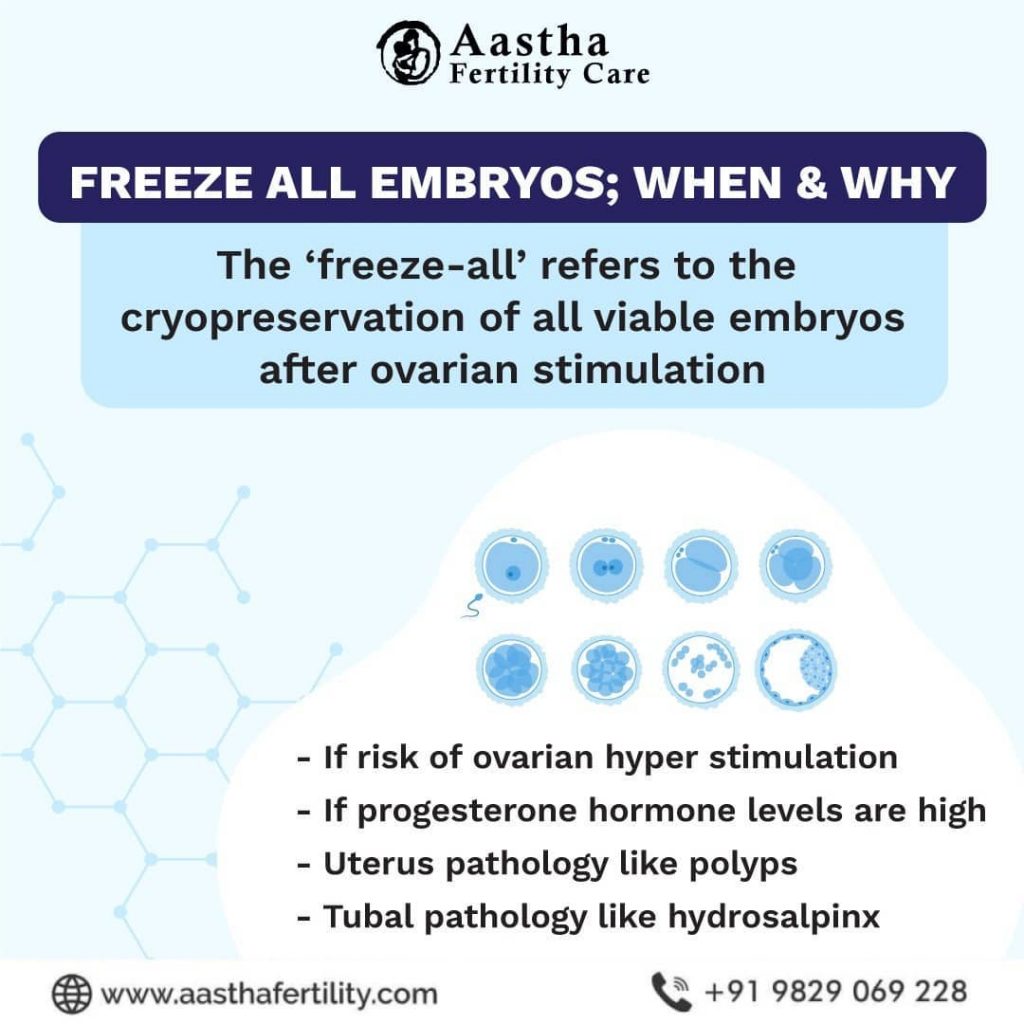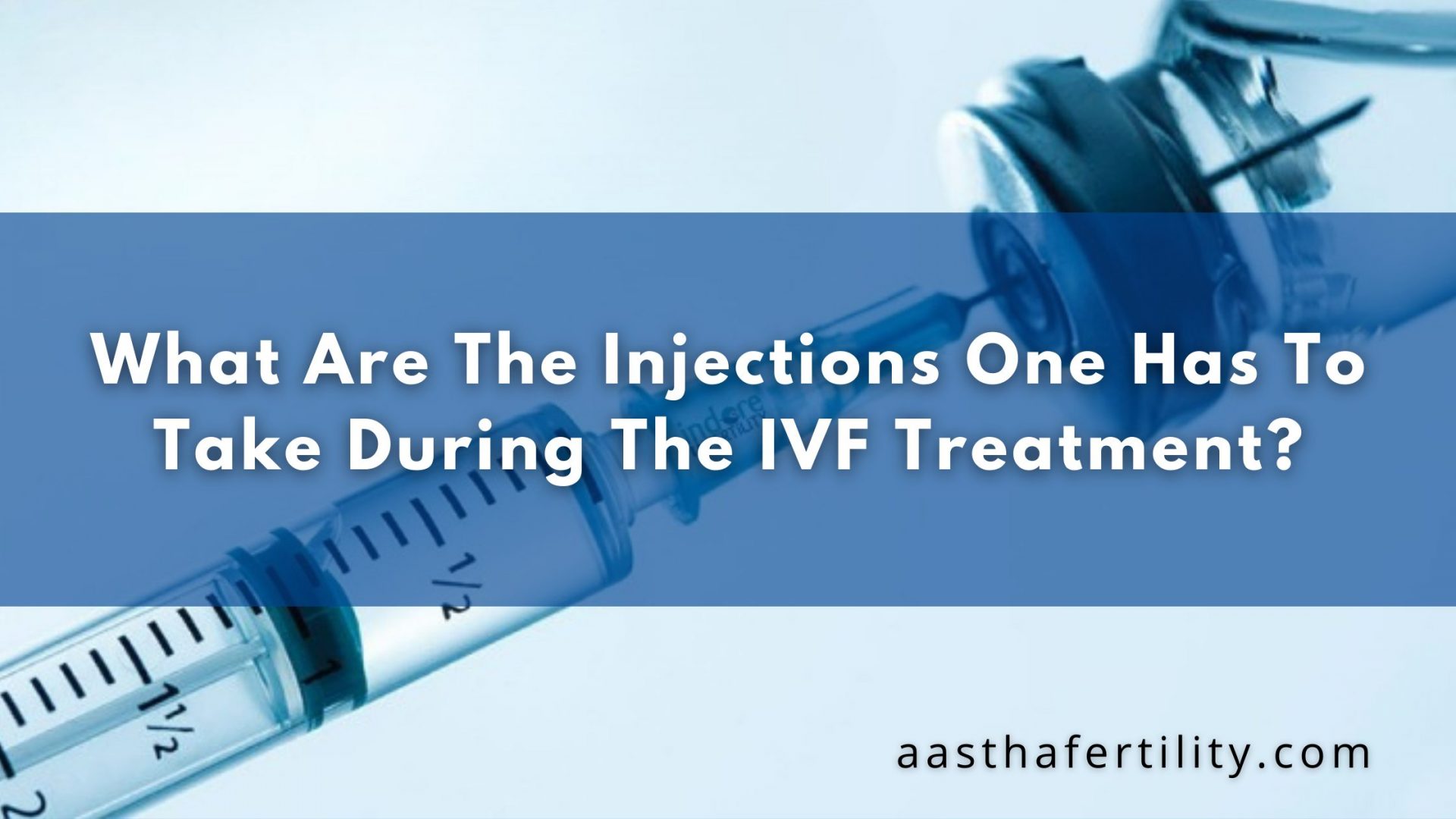Table of Contents
ToggleIf a patient requires an IVF procedure to conceive and is nearing the end of their reproductive years, then embryo cryopreservation becomes an option.
We have often heard people making crucial financial decisions for the secured future of our families. But have you heard about the process of Embryo Cryopreservation?
Just like reserving your financial funds for the future, advancement in medical technologies has made it possible for couples and individuals to preserve their eggs and embryos for future use, thereby increasing the IVF success rates.
Cryopreservation is one technique to freeze and thaw eggs, embryos, and sperms for future IVF cycles, helping with positive results. Thawed sperms can also be used for Intrauterine Insemination (IUI) procedures. Freezing embryos at the right age eliminate the need to take fertility drugs for stimulation and embryo transfer during infertility treatments in the future.
The process can be chosen for various reasons, including additional future pregnancy chances or medical treatments. The first successful pregnancy with the cryopreservation technique occurred in the 1980s, delivering a healthy baby. Since then, many people have opted for the process, assuring future happiness in their life.
Let’s explore the details of this process, how it works, how long it takes, and whether the same is the right choice or not.
What is Embryo Cryopreservation and Why is it Done?

With the increasing infertility rates, treatments for the same have seen a sudden upsurge, delivering happy smiles to the couples trying for a long time. IUI and In-Vitro Fertilization (IVF) procedures are the most opted infertility treatments. In these treatments, hormones stimulate egg development, retrieved and fertilized in medical laboratories.
After the fertilization process, there are chances of developing more embryos that can reasonably be transferred to the patient’s uterus, referring to them as extra embryos. When these extra embryos are of sufficient and desired qualities, these are frozen or cryopreserved in the same labs so that the patients may use them for future pregnancies.
Embryo Cryopreservation is possible with more than 50% of IVF cycles, increasing the opportunity to have additional healthy embryo transfers without any inconvenience, eliminating the need to invest in additional IVF cycles.
The cryopreservation technique can be processed at any stage, between the 1st and 7th day of the egg retrievals. Also, not all the extra embryos are ideal for cryopreservation, depending on their quality. According to the experts, only high-quality embryos capable of further development are likely to survive for a longer time.
There can be various reasons for a man and woman to opt for this technique. To all those who want to delay having a baby and have reached their advanced fertility age, preserving their eggs at the right age will help them with future babies, increasing the IVF chances.
The Process of Embryo Cryopreservation and How It Is Beneficial for a Female?
Our body cells are mostly water, which is the main concern while freezing the embryos or sperms in the IVF or IUI procedures. Embryo freezing is the process of ice forming in and between the cells. These ice crystals can sometimes hurt the cell walls and lead to structural cell damage.
This is why the embryos need to be protected during their freezing process, which is done using special fluids called cryoprotective agents. These agents are like the antifreeze for cells, preventing them from damage. Doctors leave the embryo to incubate in these CPA agents, removing most of the water content for the preservation stage, increasing the IVF and IUI success rates.
Doctors prefer two different methods for embryo cryopreservation- Slow Programmable Freezing and Vitrification.
- Slow Freezing: The developed embryos are placed in sealed tubes, slowly lowering the embryo freezing temperature. This reduces the risk of cell damage and also prevents them from aging. Therefore, this process is time-consuming and demands the need for expensive machinery.
- Vitrification: In this process, doctors immediately freeze the cryoprotected embryos without giving them much time to form the ice crystals. This also helps protect the embryos, increasing their survival chances during thawing.
After completing the freezing process, doctors store these embryos in nitrogen for survival. The selection of these processes will also vary the embryo freezing cost in India.
Couples Who Can Opt for Embryo Cryopreservation:
- To all the couples who have a higher risk of ovarian stimulation syndrome
- Who are achieving their advanced reproductive age and still are not ready for a baby,
- Embryo freezing is ideal for people who take medications for their health conditions and many other groups.
Here are why couples opt for Embryo Cryopreservation:
- Delaying Pregnancy:
For most women achieving their advanced fertility age and still want to postpone pregnancy, freezing their eggs is the best option. The quantity and quality of eggs tend to decline in women after 30, thereby making it difficult to conceive.
Going for cryopreservation in their 20’s is recommended for women who want to delay having a baby for personal reasons like focusing on a career.
- Women who need Chemotherapy or Radiation:
Cancer treatments negatively affect female and male infertility as the anti-cancer and radiation drugs directly target their DNA and sperm cells, reducing their viability. For all those women who need to take these drugs or anti-cancer treatments, cryopreservation allows them an option to freeze their eggs before starting the treatments.
- Preimplantation Genetic Testing:
For women worried about passing certain genetic disorders onto their children, pre-implantation genetic (PGS) testing will help them select and retrieve healthy embryos that do not have any genetic diseases. Doctors will further freeze them in their labs, eliminating the chances for any future risks. The chances of success for IVF with PGS are more than IVF.
- Couples who have experienced failed IVF cycles:
If the transfer of one embryo fails to result in a successful pregnancy, the remaining embryos can increase their chances of having a baby through IVF.
What are the Success Rates of Embryo Cryopreservation?
Thawed embryos have good and increased chances of delivering healthy babies, recording relatively higher success rates than any of its alternatives.
According to the studies, babies born through the cryopreservation technique have shown no developmental abnormalities, thereby delivering success rates for around 35% to 90%.
What are the Risks for Embryo Cryopreservation?
Research shows that freezing or thawing of embryos does not have any subsequent harm on the babies born through IVF or IUI procedures. The length of the time a source is stored also does not affect the same.
With the advancements in medical science and technologies, a slight or no difference is found in the pregnancy rates between fresh and frozen embryos. Furthermore, frozen embryos make the stimulation process gentler by keeping the level of the hormone closer and improving the pregnancy rates.
Embryo Cryopreservation at Aastha Fertility Care
Embryo Cryopreservation is relatively a safe procedure, leading to successful pregnancies and deliveries. As most of the procedures for this technique are conducted in medical labs under experts’ supervision, it demands the assistance of the best professionals.
Aastha fertility Center has the team of the best panel of IVF Specialists, delivering smiles from 15+ years. The doctors at the centre will assist you with all their medical and technical skills, understanding all your physical and emotional needs.
Book your Free Online Consultation now to get the best details for the wide range of infertility treatments offered at the centre.
Frequently Asked Questions About Embryo Cryopreservation:
Q1. Is a frozen embryo a baby?
A frozen embryo is just a developed unit stored for future pregnancies. They can only develop into fetuses only inside the uterus.
Q2. What is Oocyte Cryopreservation?
The procedure of preserving a woman’s eggs for future pregnancy is called Oocyte Cryopreservation.





Leave a comment